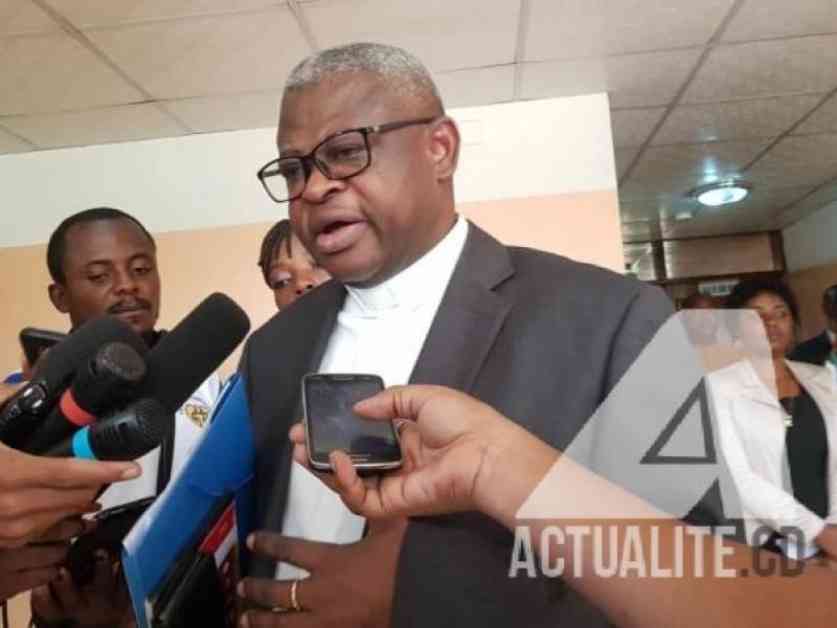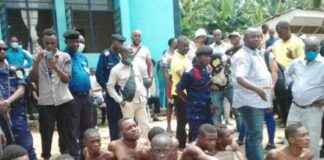Mgr Donatien Nshole, the Secretary-General of the National Episcopal Conference of Congo (CENCO), was recently questioned by the Ministry of the Interior over a statement released by the CENCO on February 22nd. The statement raised concerns about the alleged stigmatization of Swahili speakers in Kinshasa, the capital of the Democratic Republic of the Congo. Vice Prime Minister of the Interior, Jacquemain Shabani, met with Mgr Donatien Nshole on Thursday, March 6th, to discuss the content of the statement and the motivations behind its publication.
During the meeting, Mgr Donatien Nshole provided explanations regarding the statement and answered questions from the Minister about the reasons for its release. The discussions between the two officials were described as valuable, with recommendations being exchanged. Mgr Donatien Nshole emphasized the importance of addressing sensitive issues like stigmatization and ensuring the protection and cohesion of all Congolese citizens.
The Ministry’s communication team reported that Vice Prime Minister Jacquemain Shabani highlighted that the incidents mentioned in the CENCO statement were isolated cases and did not represent a systematic policy of stigmatization. He pointed out that the government had already taken appropriate action in response to most of these incidents. Shabani stressed the necessity for organizations like CENCO to collaborate closely with relevant authorities before making sensitive information public. This precaution is crucial to prevent the spread of misinformation and potential exploitation by enemies of the state, especially during times of conflict.
In the statement released by CENCO on February 22, 2025, Mgr Donatien Nshole called on the government to fulfill its duty of protecting all layers of the Congolese population and promoting social cohesion among different ethnic groups in the country. The message aimed to address the challenges faced by Swahili speakers in certain regions of the Democratic Republic of the Congo, urging authorities to ensure the well-being and unity of all ethnicities within the nation.
Expert Insights on Addressing Societal Challenges
To gain further insights into the complexities of addressing societal issues like stigmatization, we reached out to Dr. Marie Mwamba, a social psychologist specializing in intergroup relations. Dr. Mwamba emphasized the importance of open dialogue and collaboration between civil society organizations and governmental bodies to address deep-rooted social issues effectively.
She stated, “In situations where certain groups within a society feel marginalized or discriminated against, it is crucial for both government officials and community leaders to engage in constructive conversations that promote understanding and empathy. By working together, we can create a more inclusive and harmonious society for all.”
Building Bridges for a United Community
As the discussions between CENCO and the Ministry of the Interior continue, it is essential for both parties to focus on building bridges and fostering mutual trust. By embracing a collaborative approach and prioritizing the well-being of all citizens, significant strides can be made towards creating a united and inclusive community in the Democratic Republic of the Congo.
The efforts to address stigmatization and promote social cohesion are ongoing, requiring continuous dialogue, cooperation, and commitment from all stakeholders involved. By working together towards a common goal of unity and understanding, the Congolese society can overcome challenges and thrive as a diverse and cohesive nation.

















